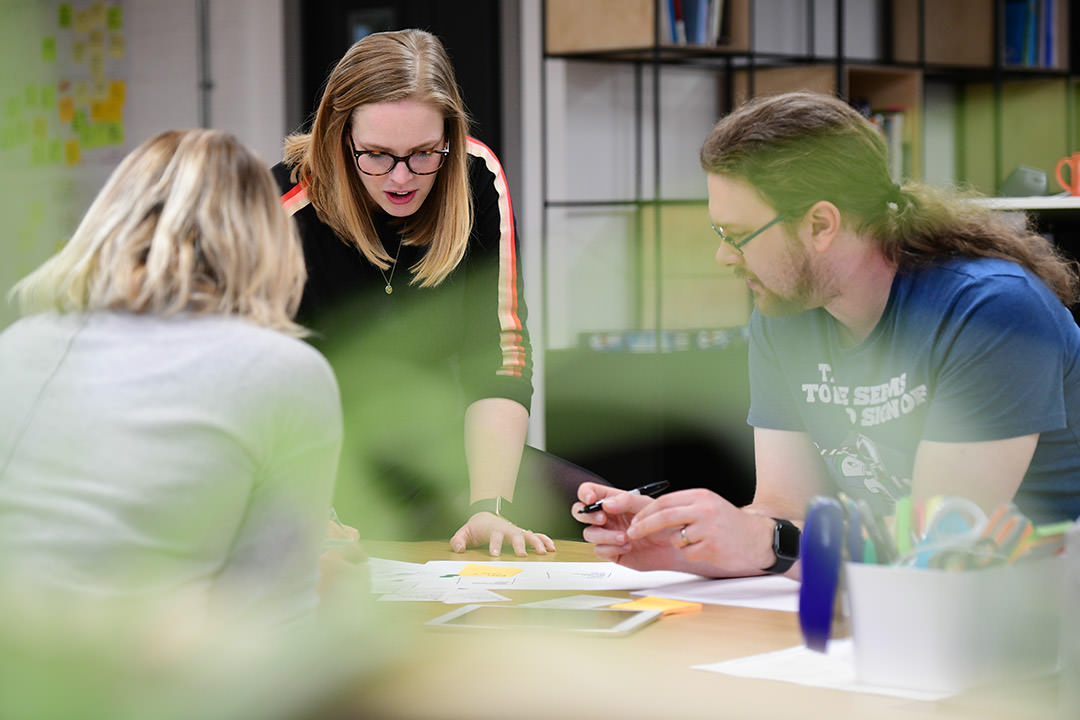Keeping the wheels turning – maintaining resilience in teams

Resilience should always be seen as an essential part of discussions about team health
In the face of the challenges thrown up by a global pandemic, teams at dxw have been working their socks off to keep delivering on our mission to improve public services. Watching colleagues turn up every day and bring their best selves to work in these difficult circumstances has been heartwarming. It’s made me reflect a lot on the common attributes of successful teams.
Projects are complex and full of unknowns. Resilience is the ability of a system (or project team) to be able to continue to change when subject to external factors. It’s perhaps the most important asset of a high performing team. Resilient teams are adaptable, work at a self-organised sustainable pace, and have high levels of trust. Teams that are not resilient are more likely to have people burn out and will expend more energy and not deliver.
In the delivery team at dxw, a big part of our role is to help facilitate, and then maintain, resilience in teams. Below are some of the lessons I’ve learned on how resilience in project teams can be sustained.
Prioritise a shared context throughout a project
Having a multidisciplinary team of motivated people with different skills and personalities is a great starting point. But this counts for little if every person in the team doesn’t share an ongoing understanding of the problem or the approach being taken to solve it.
The most important word here is ‘ongoing’. As projects change and develop in unexpected ways, so will the context in which the team is working. Invest time in keeping everyone focused on a shared understanding.
This can be done through simple things like always starting a show and tell or planning session by reiterating what the work is and why it’s being done. At dxw, we often curate slides that are updated continuously by the team and available to anyone interested in the project. This acts as a source of truth for what has happened and what is going to happen.
Making time to continually revisit context maintains a solid foundation that lets talented people do their best work.
Energy management is more important than time management
It’s impossible to manage time but it’s possible to manage a person or team’s energy. Every team has a finite amount of energy. When hurtling toward a deadline a lot of that energy is being spent. It’s not reasonable to expect any team to maintain an unchanging pace which is essential to maintaining resilience. Teams should be treated with the same respect that a person should expect to be treated with.
Teams need time to restore their energy to get ready for the next big thing. A simple, tangible thing that can be done is to build in regular breaks after set periods of time or after a challenging deadline. Firebreaks are also a great way to let teams decompress and rebuild their energy.
Normalise ‘failure’ and celebrate success
A team cannot be resilient if it’s afraid to be perceived to have failed or not delivered something as expected. This fear can drive teams to avoid solving the actual problem and it’s an unpleasant and demotivating environment to work in.
Senior leaders have an important role to play here in building a culture that helps teams not to worry when things don’t go to plan. There are some things that teams can do though.
Planning for the unexpected is helpful. Starting projects by imagining where things might go wrong and how the team will respond is a great way of normalising the unexpected. If any of those things do come to pass, the team is more able to take it in their stride and follow through on the plan.
Being open about when something hasn’t gone as expected can be hard but is valuable. Using show and tells not just to deliver good news but to talk about any challenges or unexpected results demystifies the reality that digital transformation is an iterative process of trial and error. Things won’t always go to plan but those are often the best opportunities for learning.
In addition, it’s always worth investing time in celebrating success*. Recognising and reflecting on the accomplishments of a team builds community and trust. These are important ingredients for a resilient team.
* A personal note: ‘celebrating success’ does not have to be something big or ostentatious. There’s nothing more meaningful than a sincere and genuine thank you.
Set achievable short term goals
Planning for an upcoming piece of work (in a sprint, for example) is always difficult. There’s a lot to balance: making sure everyone has their voice heard, is motivated, and agrees on the best way forward. When that balance isn’t coming easily, it’s common for teams to agree to goals that say ‘continue doing this thing’. This isn’t a goal. It’s not something you can easily measure the success of.
Teams should challenge each other to think about the quality of the goals they’re setting. Goals that can’t be measured and ticked off as ‘done’ are a ball and chain. They slow down momentum and lull people into a ‘same again’ mindset. This makes it much harder for people to be adaptable and creative when unexpected situations arise or setbacks happen. Achievable goals also make it much easier to celebrate success because you can observe progress happening in real time by ticking things off as ‘done’ frequently.
These are just some of the ways that resilience in teams can be maintained. There are others. Resilience should always be seen as an essential part of discussions about team health. A team that’s adaptable, trusting, and working at a sustainable pace will always deliver, even in the most challenging of situations.